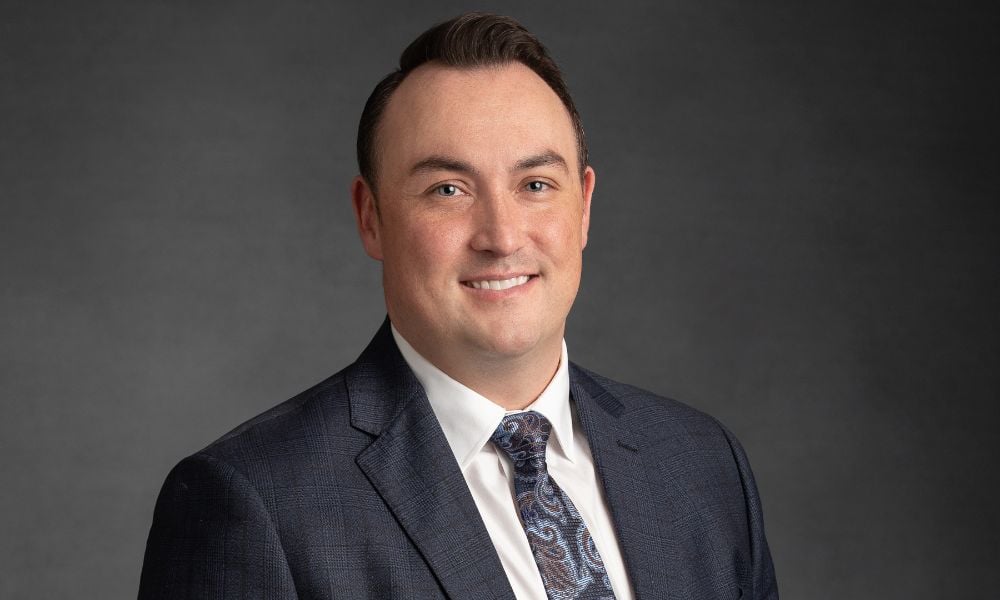Advisor details his approach to gift giving at the holidays, and why he doesn't give gifts for referrals

Gift giving is a minefield. With family and friends getting the right gift can be challenging enough with the risk of ‘what if they don’t like this’ overhanging every choice. With clients you add in regulation and a business relationship that makes the simple kind aft of giving a gift at the holidays a genuinely challenging proposition for many advisors.
Evan Inglis has a vision for his clients’ gifts. The Executive Financial Consultant with IG Wealth Management strives to give his clients something that feels personal. He wants to give gifts that speak to his relationship with the client and how well he knows them. He also wants to give gifts that express gratitude for that relationship, not for a specific amount invested, or a year of performance, or even for a referral or introduction.
“There’s nothing transactional about this, this is based on the relationship throughout the course of a given year and throughout the course of many years,” Inglis says. “Because we don’t work with our clients in a transactional way, because we have such a strong focus on maintaining those relationships and getting to know them, it doesn’t come down to a transactional decision.”
From the outset of his relationship with a client, Inglis strives to get to know them as investors and as people. He learns what restaurants they like, if they’re wine people or beer people, what their favourite sports teams are, and even what their dietary restrictions are. All those little details are stored inside his CRM system so that when the holidays come around, or a client has a major life milestone like a new baby, a death in the family, or a job loss, Inglis can prepare them a personalized gift.
Because IG and the wider industry set limits on gifts at “token” amounts, Inglis keeps each of his gifts to a firm $100 limit. By personalizing them, though, he hopes to create a greater feeling of gratitude than the gift’s dollar value. He notes the example of one client, who’s preferred beer brand is Pabst Blue Ribbon. These clients receive a basket with a bottle of wine wife, a selection of cheeses, and a six pack of PBR. Inglis’ clients also get a personalized handwritten Christmas card.
Inglis manages 97 families, which he says gives him enough time to develop deeper, more meaningful relationships with his clients and, when the holidays come around, he can personalize their gifts.
While the gifts are bespoke, Inglis says they generally don’t change in overall value year to year. Because he tries to ensure the gifts don’t feel like a transaction, he won’t upgrade gifts in a bull market, and offer more humble gifts in a bear market. The same goes for account size or a sudden influx of investment. He tries to ensure the gifts reflect his relationship with his clients as people. Reworking those gifts based on the amount an account grew on any given year, he says, would make an act of generosity into something more transactional.
Inglis notes that every advisor approaches gift giving in their own unique way, but he thinks there is often something of a quid pro quo in the way advisors approach client gifts. Holiday gifts that come with a stack of business cards, or big gifts following a big referral, can complicate the nature of a gift. Introducing expectations, either the client expecting a reward, or an advisor expecting their client to become a referral agent, can muddy the relationship somewhat.
Some advisors, Inglis says, will treat gift giving as a way of giving clients a reward for sticking with them. That may be subconsciously or consciously, but the interaction may feel more like a bonus for good performance than a simple act of human generosity.
“We only give a gift because it’s the right thing to do, because it’s the kind thing to do, because it’s in the giving spirit of Christmas, not because I expect something in return,” Inglis says. “It’s about the type of business you want to run going forward. There are plenty of advisors perfectly happy with running a business in a transactional nature. I’m not going to fault anybody for running their practice like that, but it’s not what I want. I want to run a boutique, bespoke, holistic practice where you have dozens of touch points each year.
“As much as it’s a business relationship, I consider my clients to be friends, I consider this a business where I’m able to build really strong relationships with people, and just as I would give a good friend of mine a gift I think they’d enjoy, that resonates with them, I’m more than happy to do that for my clients.”


